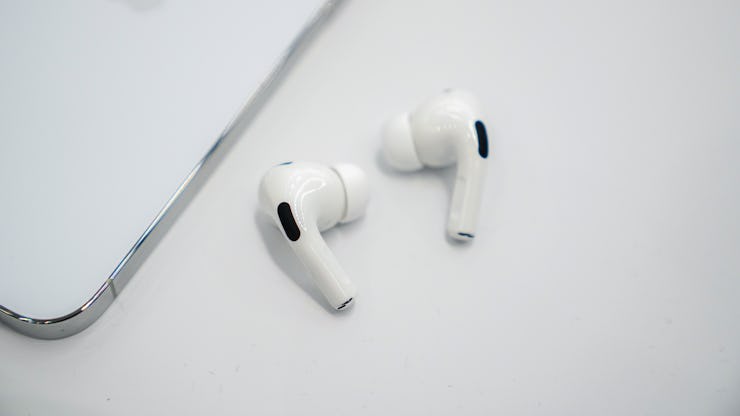Turning AirPods Into Another Health Success Story Just Makes Sense
Under Tim Cook, Apple’s North Star is health.

AirPods are popular — Apple reportedly sold $27 million over the 2021 holiday, and sales continue to grow — but rumors and reports are coalescing around a plan that could make the wireless earbuds even more essential by turning them into a health-monitoring device.
Bloomberg’s Mark Gurman speculates that Apple might pivot the AirPods into a proper FDA-approved hearing device in his Power On newsletter, a safe bet that draws on some of his own reporting from 2021. But if you even just consider the success of the Apple Watch, the move makes sense.
The world's most popular hearing aid
The AirPods Pro have all the makings of an assistive hearing device.
The AirPods are already capable of some basic hearing enhancement thanks to accessibility features on the iPhone. Live Listen, when enabled, can use the microphones on a pair of AirPods or Beats headphones to magnify sound around you. Apple also advertises the adaptive transparency mode in AirPods Pro 2 as a way to protect your hearing from loud sounds, even at places like concerts. But Gurman theorizes AirPods could be upgraded “to become a health tool” that gathers “hearing data” in a more “official” capacity beyond just existing as an adjustable feature in settings.
The U.S. Food and Drug Administration only recently made it possible for companies to sell over-the-counter hearing aids without a prescription, but that new ruling leaves an obvious opening for Apple to step in with an updated version of the AirPods, in much the same way Sony is already trying to do with its hearing aids. Considering the millions of people already using AirPods, Apple could soon sell the world’s most popular hearing aid if it convinces enough people to upgrade.
There are other options. Gurman initially reported that a new motion sensor in future AirPods models would allow for some kind of fitness tracking feature, and Apple already has a patent for an appropriately ear-sized biometric sensor that can detect temperature, heart rate, and even perspiration. Assisting users who are hard of hearing seems like an easier nut to crack than packing in an Apple Watch’s worth of sensors into AirPods, but the point is Apple has thought about this before.
The Greatest Contribution to Mankind
If you take the company at its word, it genuinely believes the place it can have the greatest impact in the world is in improving users' health. In an interview with CNBC’s Jim Cramer, Apple CEO Tim Cook said it plainly. “I believe, if you zoom out into the future, and you look back, and you ask the question, ‘What was Apple’s greatest contribution to mankind?’ it will be about health,” Cook said. The Apple Watch or a service like Apple Fitness+ are the simplest versions of that idea, but Apple thinks it can do more.
Then again, maybe that health focus is really about selling more iPhones. A product you believe is vital to your health and continued safety is pretty hard to give up. Here you can see the latest evolution of Apple’s “lock-in” strategy. What started as the convenience of owning a phone and computer that worked better together is now directly tied to your health. If you think the Apple Watch is your best chance of noticing a heart problem before your doctor does, are you really going to stop using the only phone it works with?
This isn’t “I own too many iPhone apps to switch to Android easily.” Apple has subtly been selling your survival for the last few years. Look at last year’s iPhone launch, which focused on the iPhone 14’s Emergency SOS system and crash detection on the new Apple Watches. Apple clearly drew a line between its devices and your ability to survive a catastrophe.
Apple's claims aren’t unfounded, and it has made real groundbreaking strides in miniaturizing health monitoring technology — reportedly even a no-prick blood glucose monitor for a future Apple Watch. But new, more useful AirPods should be treated with just as much scrutiny as anything else. Could they help millions of people? Of course! Are they another tool to keep you buying Apple? Almost certainly.